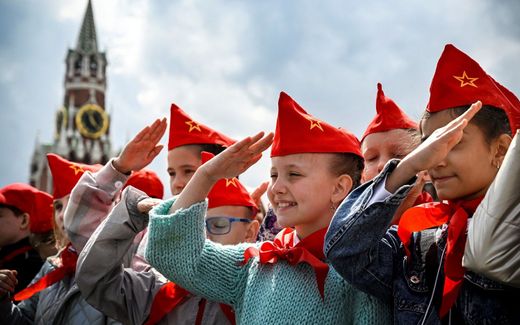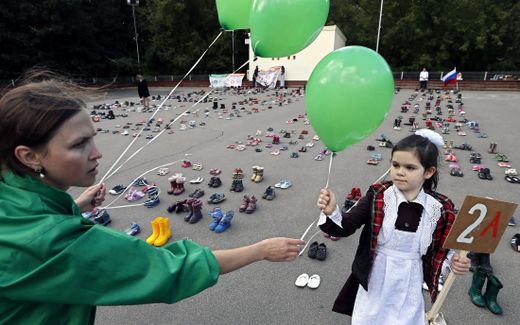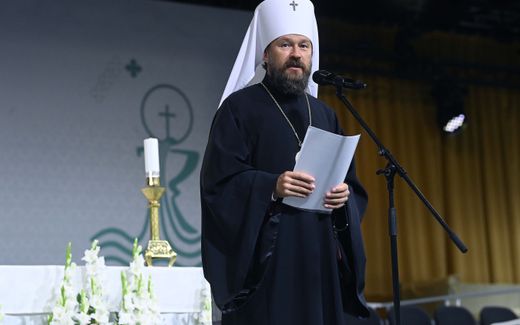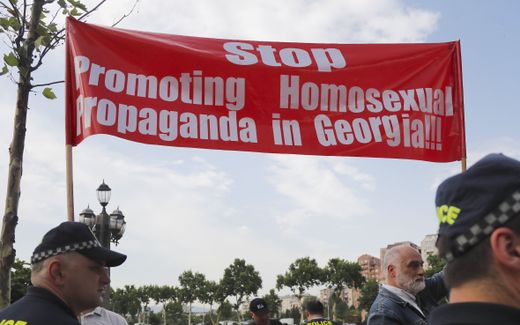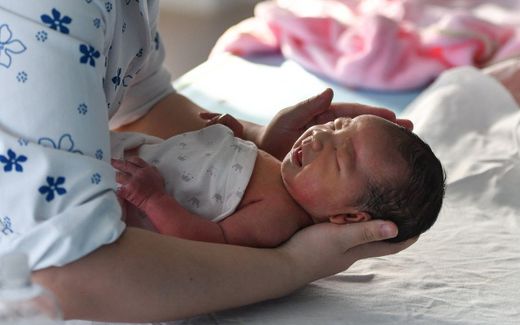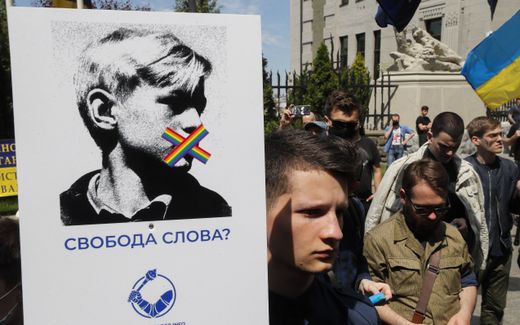Will Russia’s ban on “dangerous child-free ideology” lead to more kids?
28-01-2025
Eastern Europe
William Immink, CNE.news

A girl jumps from a snow pile in Moscow, Russia. Photo AFP, Natalia Kolesnikova
Eastern Europe
Each year, Russia loses people equivalent to the number of inhabitants of a large city. It is becoming clear that the nation must be saved. But will Russia’s leadership be able to change the current demographic course? And will the ban on “child free promotion” save the day?
Russia is grappling with its demographic statistics, but finding a solution is difficult. No country has yet developed a method for significantly increasing the birth rate.
Yet, the Russians are trying to find a way to become the last bastion of traditional family values. It is unclear, however, if that will work.
In an attempt to change course, the Russian parliament decided to ban so-called child-free propaganda. Presenting a life without children as positive or attractive is a crime, as far as the Duma is concerned. Questions remain as to what exactly they are banning. Does their decision affect the birth rate, or is it not just another repressive law?
Yevgeni Bakhmutsky, a pastor from the Russian Biblical Church, says in his podcast: "I have not heard that this ideology has taken deep roots in our society, but it is present, nonetheless. And yes, in general, it's quite a dangerous ideology because it speaks of children as a problem."
Worst numbers
But first, it is important to look at the statistics, which all point to a massive problem. The year 2024 was dubbed the 'Year of the Family' in Russia. But what had to become a year of positive statistics turned out to be the worst in over a decade. Russia has now lost hundreds of thousands within its population.
Not only did Russia lose young men in the 'special military operation' in Ukraine, but also women are much less likely to have kids when times are hard. Nobody knows what the future will look like.
In 2024, the country had over 600,000 more deaths than births, according to statistics of from the United Nations. The population has declined to 144.8 million compared to almost 149 million since the nation was established in 1990.
What was banned?
Most people do not exactly know what Russian lawmakers mean when they speak of "child-free" propaganda. However, just a few searches on the internet have already shown us that there are tens of "child-free organisations". According to members of these organisations, child-free people are a "marginalised" group under pressure from society. They feel society is pushing them to have kids.
Child-free communities push their agenda through podcasts, workshops, articles and literature, normalising their refusal to even think about having kids.
It is no wonder Russia sees these Western NGOs pushing their "diversity, equity and inclusivity" agenda as a similar threat to LGBTQ organisations. The Kremlin wants nothing to do with these leftist organisations and does not want them on Russian soil, and so do the Russian people.
Concretely, from now on, it is not allowed to write about 'child-free' on the internet, in films, advertisements, or in the media. Restaurants cannot ban parents with children from eating at their tables anymore. Until now, it has not been strange in Russia to see "child-free" restaurants. Some say that the law is just an anti-Western and antiliberal reaction to the "insanity" in the Western world. Consequently, nuns in celibacy and other forms of monasticism will be exempt from this law.
Orthodox pressure
The main push for banning child-free promotion comes from the Orthodox Church. As a fervent Orthodox believer and head of the patriarch's Commission on the Family and the Defence of Motherhood and Childhood, Fyodor Lukyanov is grateful this law made it through the Duma in this "Year of the Family". His Commission has successfully been pushing laws against abortion, LGBTQ propaganda and even "quadrobing" (imitating animal movements, sometimes with a sexual connotation) in public.
In an article from the Institute of Religion and Policy, Lukyanov said that this "child-free ideology is deeply alien to our people." In his opinion, the propaganda of these ideas is carried out to create "anti-family and egoistic attitudes in the younger generation in Russia".
"Child-free ideologists deceive their followers, convincing them that it is possible to be happy alone," he argued.
No Real Examples
According to Pastor Bakhmutsky, demanding people have children without giving an example is not wise. "Mere verbal encouragement, however correct it may be, would not have such force." Pastor Bakhmutsky himself has four kids.
Interestingly, most Russian leaders are not an example of a "child-welcoming" policy. Foreign Minister Sergey Lavrov has one daughter. Former president Dmitry Medvedev has one son. President Putin himself has two daughters, but they never appear in public together.
Prime Minister Mishustin is the only statesman with more than two kids. He has three boys. Mishustin noted that he was glad to hear about such a bill in the Year of the Family, which would "protect the family, love and children" – "the foundation of the state and society, since a person becomes a real person by showing love, and it is the family and children that are the school of this love," he says.
Nothing new
Protestant churches in Russia have warned against child-free propaganda for quite some time now. A good example is an article from 2012 on the website of the Union of Russian Pentecostals (RCHVE). There, Liliya Pogorelaya writes that the child-free ideology, after "sprouting" in liberal US states like California, also "very quickly "sprouted" in Austria, Europe, and Russia.
In 2014, an evangelical pastor and his wife, Tatyana and Oleg Storozhev, starred in a Russian TV program called That's Life. A child-free advocate visited their small apartment with five children, which resulted in a popular TV show. So, even back then, the child-free propaganda was criticised on state television.
Bakhmutsky makes some connotations, however, saying that the law should not be misused: "We must not create some kind of inquisition. We should not invade people's privacy and start demanding certain things." Later, he adds: "Children should be born out of love, not under the fear of punishment; after all, children are a gift from God."
Related Articles


